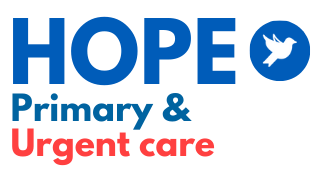Healthy Heart, Healthy Life: Cardiovascular Screenings Explained
Your heart is the engine that powers your entire body. It pumps life-sustaining blood, oxygen, and nutrients to every cell, enabling you to live, work, and enjoy life to the fullest. However, cardiovascular diseases (CVDs) remain the leading cause of death worldwide, making heart health a critical aspect of overall wellness. Regular cardiovascular screenings can identify potential risks early, empowering you to take proactive steps to maintain a healthy heart.
In this comprehensive guide, we’ll break down the importance of cardiovascular screenings, the tests involved, and when you should consider getting screened. By the end, you’ll understand how these screenings can help you live a longer, healthier life and what steps to take next.
Why Are Cardiovascular Screenings Important?
Cardiovascular screenings are designed to detect early signs of heart disease or assess your risk for developing it in the future. Many heart conditions, such as high blood pressure, high cholesterol, and atherosclerosis, develop silently over time. Without routine checks, these conditions can progress to serious complications like heart attacks, strokes, or heart failure.
By identifying risk factors early, screenings can:
- Help you make lifestyle changes that reduce your risk.
- Allow for early medical interventions to prevent progression.
- Provide peace of mind when results are within a healthy range.
Early detection and prevention are the cornerstones of heart health. For example, studies show that managing high blood pressure can reduce the risk of stroke by 35-40% and heart attack by 20-25%.
Who Should Get Screened?
While everyone can benefit from understanding their heart health, some individuals are at higher risk and should prioritize screenings. These include:
- Adults Over 40: Cardiovascular risks increase with age, making regular screenings essential for middle-aged and older adults.
- Individuals with a Family History of Heart Disease: Genetics play a role in conditions like high cholesterol and hypertension.
- Those with Lifestyle Risk Factors:
- Smoking
- Poor diet (high in saturated fats, salt, and sugar)
- Physical inactivity
- Excessive alcohol consumption
- People with Chronic Conditions:
- Diabetes
- Obesity
- Chronic kidney disease
- Individuals Experiencing Symptoms: If you’ve noticed chest pain, shortness of breath, fatigue, or irregular heartbeats, a cardiovascular screening is critical.
Key Cardiovascular Screening Tests
Screenings for heart health involve a combination of tests and assessments to evaluate different risk factors. Let’s explore the most common ones:
-
Blood Pressure Measurement
High blood pressure, or hypertension, is often called the “silent killer” because it rarely presents symptoms. Measuring your blood pressure helps determine whether your heart is working harder than it should. Normal blood pressure is typically below 120/80 mmHg.
-
Cholesterol Panel
A lipid profile measures the levels of:
- Low-Density Lipoprotein (LDL): Known as “bad cholesterol,” high levels can lead to plaque buildup in arteries.
- High-Density Lipoprotein (HDL): The “good cholesterol” that helps remove LDL.
- Triglycerides: Excess calories converted into fat.
- Total Cholesterol: A combined measure of LDL, HDL, and triglycerides.
Desirable levels include:
- Total cholesterol: Less than 200 mg/dL
- LDL: Less than 100 mg/dL
- HDL: 40 mg/dL or higher
- Triglycerides: Less than 150 mg/dL
-
Blood Glucose Test
High blood sugar levels can indicate diabetes or prediabetes, both of which significantly increase cardiovascular risk. A fasting glucose level below 100 mg/dL is considered normal.
-
Electrocardiogram (ECG or EKG)
An ECG records the electrical activity of your heart. It’s used to detect abnormal rhythms (arrhythmias), heart attacks, or other structural issues.
-
Stress Test
This test evaluates how well your heart performs under physical stress, often by walking on a treadmill or cycling while being monitored. It’s particularly useful for detecting coronary artery disease (CAD).
-
Echocardiogram
An echocardiogram uses ultrasound to visualize the heart’s structure and function. It’s useful for diagnosing conditions like heart valve disease or heart failure.
-
Coronary Calcium Scan
This imaging test uses a CT scan to detect calcified plaque in your coronary arteries, providing a direct measure of atherosclerosis and cardiovascular risk.
Preparing for a Cardiovascular Screening
Proper preparation ensures accurate results and a meaningful discussion with your healthcare provider. Here are some tips:
- Fasting: For blood tests like cholesterol or glucose panels, you may need to fast for 9-12 hours beforehand.
- Medication List: Bring a list of your current medications and supplements.
- Lifestyle Information: Be ready to discuss your diet, exercise habits, and family medical history.
- Symptoms: Note any unusual symptoms you’ve experienced, such as fatigue, swelling, or chest discomfort.
Interpreting Your Results
After your screenings, your healthcare provider will discuss the results and recommend next steps. Here’s what you can expect:
- Normal Results: Celebrate and continue your healthy lifestyle!
- Elevated Risk Factors: Your provider may suggest lifestyle changes, such as a healthier diet, more exercise, or quitting smoking.
- Abnormal Findings: Additional tests or treatments might be necessary, such as imaging studies, medication, or referrals to a specialist.
Lifestyle Tips for a Healthy Heart
Regardless of your screening results, adopting heart-healthy habits is vital. Here are proven strategies:
- Eat a Balanced Diet: Focus on fruits, vegetables, whole grains, lean proteins, and healthy fats. Limit saturated fats, trans fats, sodium, and added sugars.
- Stay Active: Aim for at least 150 minutes of moderate aerobic activity per week, such as brisk walking, cycling, or swimming.
- Quit Smoking: Smoking damages blood vessels, raises blood pressure, and accelerates atherosclerosis.
- Manage Stress: Chronic stress can contribute to high blood pressure and other heart issues. Consider meditation, yoga, or other relaxation techniques.
- Limit Alcohol: Excessive drinking increases blood pressure and contributes to weight gain.
- Maintain a Healthy Weight: Obesity strains the heart and increases the risk of diabetes, high cholesterol, and hypertension.
When to Schedule Your Next Screening
The frequency of cardiovascular screenings depends on your age, risk factors, and health status:
- Under 40: Screenings every 2-5 years if you’re healthy and have no risk factors.
- 40-60: Annual screenings, especially if you have lifestyle risks or a family history of heart disease.
- Over 60: Annual screenings are critical to monitor age-related risks.
If you’re experiencing symptoms or have multiple risk factors, consult your healthcare provider about a more personalized screening schedule.
Take Control of Your Heart Health Today
Cardiovascular screenings are a powerful tool to safeguard your heart and overall well-being. By staying proactive and informed, you can detect risks early, make healthier choices, and enjoy a vibrant, active life.
At Hope Primary & Urgent Care, we’re dedicated to helping you maintain a healthy heart. Our compassionate team offers comprehensive cardiovascular screenings and personalized care to meet your needs. Don’t wait to take charge of your heart health. Contact us today to schedule your screening or visit our clinic for expert guidance.
Your heart deserves the best care. Let us help you achieve a healthier, happier life.

